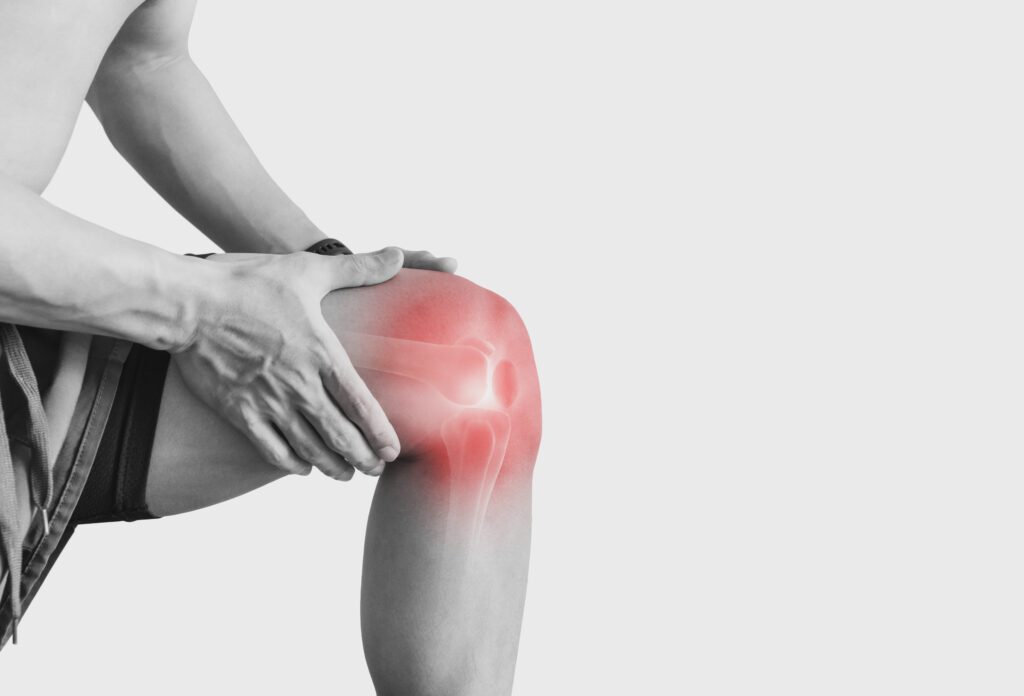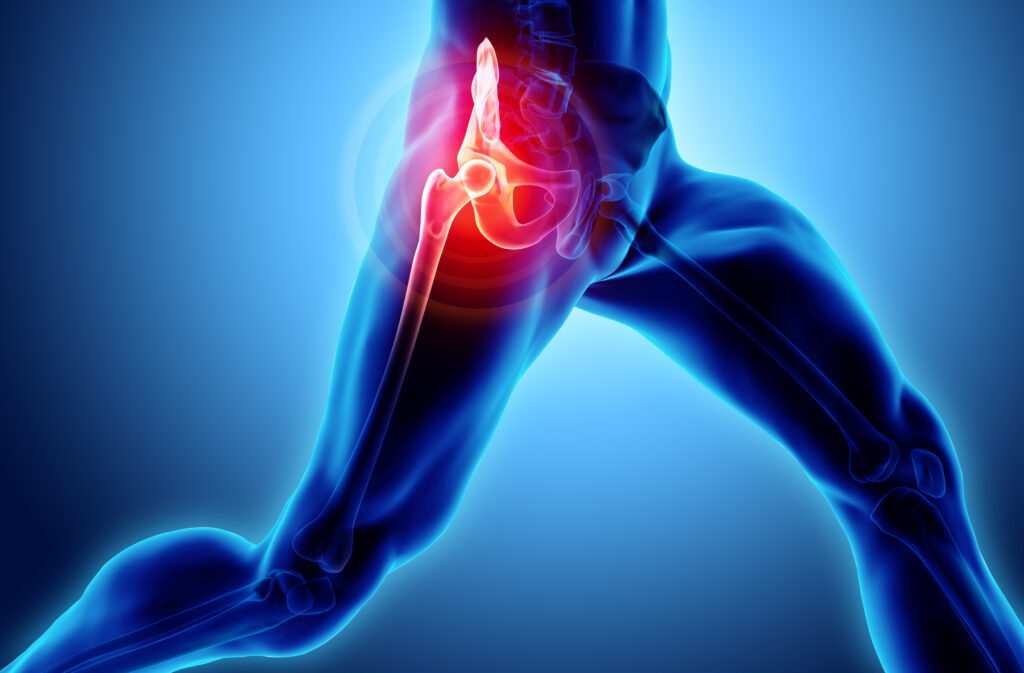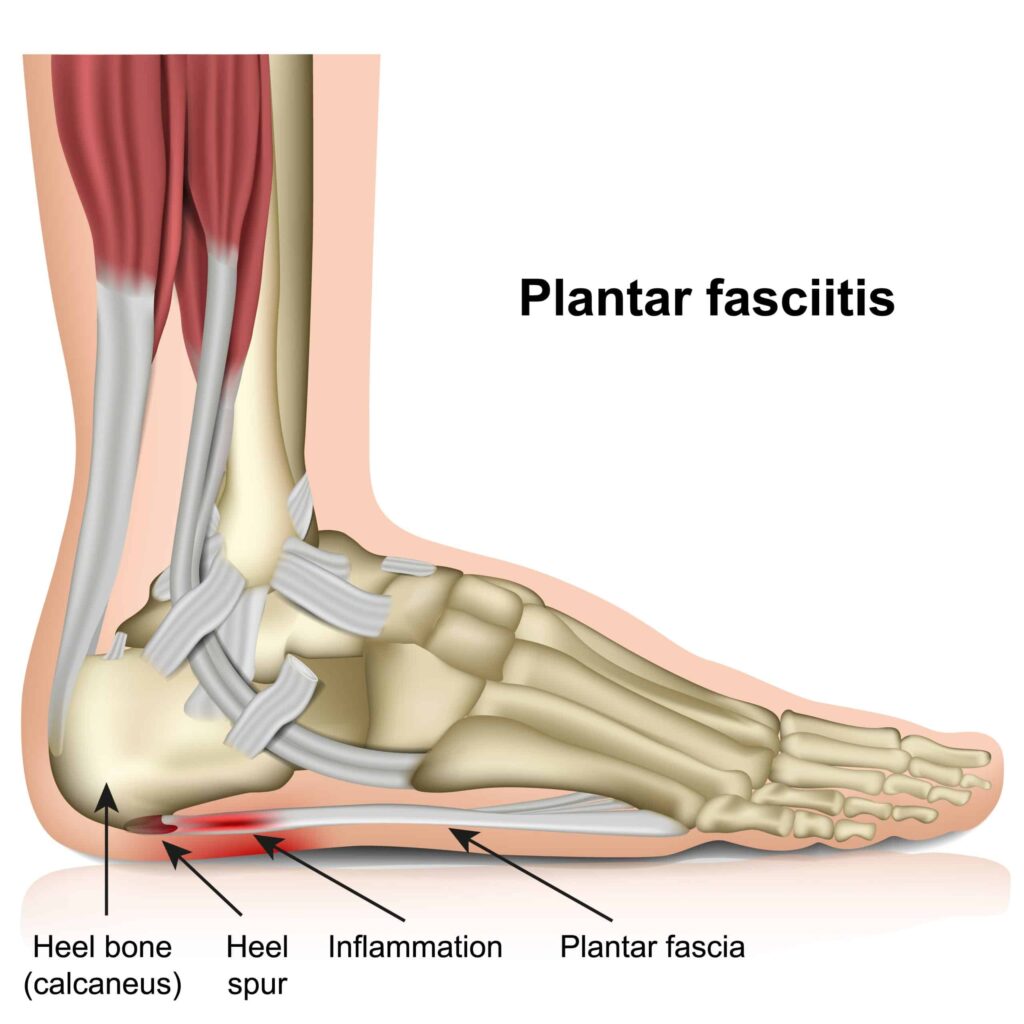Looking for Expert-Level VA Claim Answers?📱Call Us Now! 737-295-2226
This guide reveals the Top 5 VA Secondary Conditions to Knee Pain for disability benefits utilizing the legal and medical requirements for secondary service connection.
This is the ultimate guide for veterans searching for secondary conditions to knee pain.
According to this Veterans Benefits Administration (VBA) report to Congress, Limitation of Flexion of the Knee was the #2 most claimed VA disability for new compensation recipients with 98,492 veterans service-connected.
In addition, Limitation of Flexion of the Knee was the #3 was commonly claimed and service-connected disability for all veterans, with 1,313,305 veterans service-connected.
While the average VA Rating for Knee Pain is 10% making it a low-value VA claim, did you know there are five OTHER commonly linked disability claims that can be medically linked through “causation” or “aggravation” and claimed secondary to your service-connected Knee Pain?
In our experience, many veterans don’t even realize they qualify for a variety of additional VA disability benefits due to their current service-connected Knee Pain.
Why?
Because veterans aren’t medical experts (nor should they be), and yet, VA disability claims depend almost entirely upon MEDICAL EVIDENCE!
Knee Pain can have significant debilitating effects on veterans, especially due to the side effects of medications taken to manage your pain, often leading to a variety of other disabling conditions in veterans, such as various Orthopedic Conditions, Plantar Fasciitis, Arthritis, GERD and IBS, and Depression and Anxiety.
- How to Prove Secondary Service Connection
- Need a Nexus Letter to Help Establish Secondary Service Connection?
- List of the Top 5 VA Secondary Conditions to Knee Pain
- #1. Orthopedic Conditions Secondary to Knee Pain
- #2. Plantar Fasciitis Secondary to Knee Pain
- #3. Arthritis Secondary to Knee Pain
- #4. GERD and IBS Secondary to Knee Pain
- #5. Depression and Anxiety Secondary to Knee Pain
- Ready to Get the VA Rating and Compensation YOU Deserve?
- About The Author

How to Prove Secondary Service Connection
In accordance with 38 CFR § 3.310 disabilities that are proximately due to, or aggravated by, service-connected disease or injury, a current disability condition, which is proximately due to or the result of a service-connected disease or injury, shall be service-connected.
Service connections on a secondary basis are referred to as VA secondary conditions. A VA secondary service connection, including VA secondary conditions to knee pain, requires a showing of causation.
A showing of causation requires that the secondary disability claim be shown to be “proximately due to” or “aggravated by” another service-connected disability.
There are three evidentiary elements that must be satisfied for VA secondary conditions to knee pain to prove service connection under the law:
- A medical diagnosis of the secondary disability condition you’re attempting to link to Knee Pain AND
- A current service-connected primary disability (e.g., your current Knee Pain VA Rating) AND
- Medical nexus evidence establishing a connection between the service-connected Knee Pain and the current disability you’re trying to connect (e.g., Orthopedic Conditions, Plantar Fasciitis, Arthritis, GERD and IBS, and Depression and Anxiety)
The first part can be satisfied with any existing medical evidence in service treatment records, VA medical records, or any private medical records.
The second part can be satisfied with a veteran’s existing service-connected disability rated at 0 percent or higher, which in this case, is Knee Pain.
The third part, and often the missing link needed to establish secondary service connection, can be satisfied with a credible Medical Nexus Letter (Independent Medical Opinion) from a qualified medical provider.
>> Wondering how to find doctors who write credible medical nexus letters for veterans?
Did you know there are five primary VA disability conditions that can be medically linked to your current Knee Pain?
Here’s the brutal truth, fellow veterans…
You could be missing out on thousands of dollars of tax-free disability benefits you deserve by law, and not even realize that your current VA disability might be caused or aggravated by your service-connected Knee Pain.
Need a Nexus Letter to Help Establish Secondary Service Connection?
Click HERE Now to Join VA Claims Insider Elite, our premier education-based membership program, which also gets you discounted access to independent medical providers in our referral network for medical examinations, VA disability evaluations, and Medical Nexus Letters for a wide range of conditions.
List of the Top 5 VA Secondary Conditions to Knee Pain
- #1. Orthopedic Conditions Secondary to Knee Pain
- #2. Plantar Fasciitis Secondary to Knee Pain
- #3. Arthritis Secondary to Knee Pain
- #4. GERD and IBS Secondary to Knee Pain
- #5. Depression and Anxiety Secondary to Knee Pain
Okay, it’s time to jump into the top 5 disability conditions linked to be “proximately due to” or “aggravated by” service-connected Knee Pain.
#1. Orthopedic Conditions Secondary to Knee Pain

There are numerous orthopedic conditions that can connected secondary to your knee pain, including neck, back, hip, and ankle conditions, among others.
For example, your service connected knee pain in one leg may cause you to inadvertently favor your healthy leg, leading to other disabling conditions such as neck pain, back problems, hip pain, ankle pain, and other knee pain.
It’s well known in the medical community that left side of body orthopedic conditions can affect right side of body, and vice versa, especially due to favoring one side of the body due to pain.
VA ratings for orthopedic conditions generally range from 0% to 100% across various Diagnostic Codes, however, many strains, sprains, and conditions with “painful motion” will be rated at 10%.
#2. Plantar Fasciitis Secondary to Knee Pain

Plantar Fasciitis is one of the most common causes of heel pain in veterans and can be proximately due to or aggravated by service connected Knee Pain.
Plantar Fasciitis involves inflammation of the thick band of tissue that runs across the bottom of your foot and connects your heel bone to your toes (called the “Plantar Fascia”).
Many veterans have or develop Plantar Fasciitis and common signs and symptoms include:
- Heel pain (especially after standing, walking, or running)
- Painful motion
- Tenderness
- Swelling
You may get some relief by icing, taking pain medications, wearing a brace, heal inserts in shoes, night splints, and in extreme cases, cortisone shots directly into the affected area.
Plantar Fasciitis is a VA disability that is linked secondary to Knee Pain and can be rated at 10%, 20%, or 30%, depending upon unilateral (one foot) versus bilateral (both feet) and the severity of your symptoms.
With actual loss of use of the foot, rate at 40%.
If a veteran has been recommended for surgical intervention, but is not a surgical candidate, evaluate under the 20% or 30% criteria, whichever is applicable
Effective February 7, 2021, Plantar Fasciitis VA Ratings fall under CFR 38, Part 4, VA Schedule of Ratings, Diagnostic Code 5269, Plantar Fasciitis.
#3. Arthritis Secondary to Knee Pain

Generally, Arthritis involves the swelling and tenderness of one or more joints.
The main symptoms of arthritis are joint pain and stiffness, which typically worsen with age.
The two most common types of Arthritis are Osteoarthritis (Degenerative) and Rheumatoid Arthritis.
According to the Mayo Clinic, Knee Pain can lead to a variety of different types of Arthritis in veterans, and vice versa.
For example, a veteran might have Knee Pain that leads to Arthritis, in which the Arthritis can be connected secondary to Knee Pain.
Degenerative Arthritis is quite common in veterans and is rated under Diagnostic Code 5003 with ratings between 10% and 20% depending upon X-ray evidence as well as the frequency, severity, and duration of symptoms.
- 10% VA Rating for Arthritis: With X-ray evidence of involvement of 2 or more major joints or 2 or more minor joint groups 10%.
- 20% VA Rating for Arthritis: With X-ray evidence of involvement of 2 or more major joints or 2 or more minor joint groups, with occasional incapacitating exacerbations rate at 20%
#4. GERD and IBS Secondary to Knee Pain

At first glance, you might be wondering how Gastroesophageal Reflux Disease (GERD) and Irritable Bowel Syndrome (IBS) can be connected secondary to Knee Pain.
Here’s the deal fellow veterans: If you take over-the-counter or prescription medications to manage symptoms of your service connected conditions, you’re eligible for secondary service connection if those medications cause or make other conditions worse.
For example, you might be taking Non-Steroidal Anti-Inflammatory Drugs (NSAIDs) to manage symptoms of your service connected Knee Pain.
Common side effects of long-term use of NSAIDs include GERD and IBS, and thus, you can be service connected for GERD secondary to Knee Pain or IBS secondary to Knee Pain.
GERD Secondary to Knee Pain
Gastroesophageal Reflux Disease (GERD) can be rated secondary to Knee Pain (side effects of medications taken to manage Knee Pain) and occurs when stomach acid repeatedly flows back into the esophagus, which is the tube connecting your mouth and stomach – this common leads to heartburn.
GERD is a VA disability and can be rated at 10%, 30%, or 60%, depending upon the severity of your symptoms.
>> Click HERE to learn about VA Ratings for GERD <<
GERD is most often rated under CFR 38, Part 4, VA Schedule of Ratings, Diagnostic Code 7346, Hernia Hiatal.
IBS Secondary to Knee Pain
IBS can be rated secondary to Knee Pain (side effects of medications taken to manage Knee Pain), and normally causes stomach pain along with changes in bowel habits, either diarrhea, constipation, or both.
>> Click HERE to learn about VA Ratings for IBS <<
IBS is rated under diagnostic code 7319, Irritable Colon Syndrome and can be rated at 0%, 10%, or 30% depending upon the frequency, severity, and duration of symptoms.
#5. Depression and Anxiety Secondary to Knee Pain

According to the Mayo Clinic, Depression is a “mood disorder that causes a persistent feeling of sadness and loss of interest.”
Clinical Depression is most often diagnosed as Major Depressive Disorder (MDD), and it affects how you feel, think, and behave and can lead to a range of mental, emotional, physical, and social problems.
Veterans may have trouble accomplishing normal day-to-day activities, you may be too depressed to leave your home or get out of bed, and sometimes you may even feel as if life isn’t worth living (suicidal thoughts).
Can Knee Pain Cause Depression and Anxiety?
Service connected Knee Pain can absolutely lead to day-to-day work and life challenges such as immobility and weight gain.
Thus, Knee Pain can impact a veteran’s work, life, and social functioning, which can cause or aggravate Depression and Anxiety.
Accordingly, a veteran can be service connected for Depression and Anxiety secondary to Knee Pain.
Depression and Anxiety VA ratings depend on the severity of a veteran’s mental health symptoms, meaning, the more severe your symptoms, the higher the VA rating for Depression and Anxiety.
The average VA Rating for Depression and Anxiety is currently at 70%, but veterans can be rated from 0% to 100%, with breaks at 10%, 30%, 50%, and 70%.
>> Click HERE to learn about VA Ratings for Depression <<
That’s a wrap on our Top 5 VA Secondary Conditions to Knee Pain!
Ready to Get the VA Rating and Compensation YOU Deserve?
At VA Claims Insider, we help fellow Veterans celebrate LIFE CHANGE by getting them the VA disability rating and compensation YOU DESERVE by law.
And, you’ll get to work with a Veteran Coach (VC) who will lead you to VA claim success.
- We’re a company OF Veterans, BY Veterans, FOR Veterans! FOR Veterans, BY Veterans. We’re the largest community of Veterans Helping Veterans Worldwide™
- 25,000+ disabled veterans served in our Elite Membership program since 2016 with and average VA disability rating increase of >30%
- 4.8/5.0 Google Reviews rating across 2,000+ total reviews
Click HERE to Join the #1 Rated VA Claims Insider Elite Program and Start Today for FREE.
About The Author

Brian Reese
Brian Reese is a world-renowned VA disability benefits expert and the #1 bestselling author of VA Claim Secrets and You Deserve It. Motivated by his own frustration with the VA claim process, Brian founded VA Claims Insider to help disabled veterans secure their VA disability compensation faster, regardless of their past struggles with the VA. Since 2013, he has positively impacted the lives of over 10 million military, veterans, and their families.
A former active-duty Air Force officer, Brian has extensive experience leading diverse teams in challenging international environments, including a combat tour in Afghanistan in 2011 supporting Operation ENDURING FREEDOM.
Brian is a Distinguished Graduate of Management from the United States Air Force Academy and earned his MBA from Oklahoma State University’s Spears School of Business, where he was a National Honor Scholar, ranking in the top 1% of his class.



